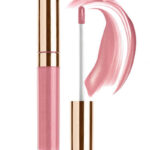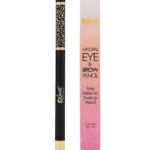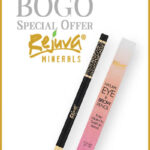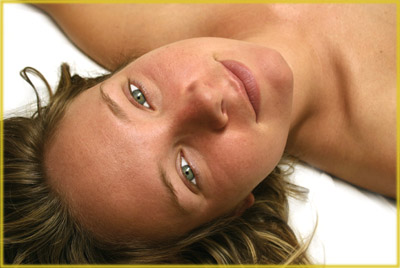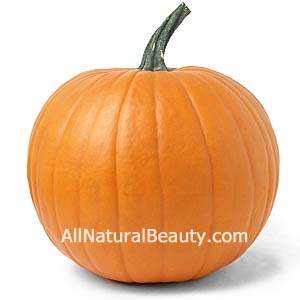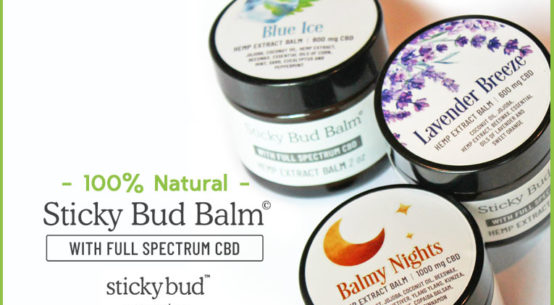
When a plant leaf or stem is torn, a clear liquid will come out. The plant releases this clear substance in order to clean the break, kill bacteria and start the regeneration process. This plant liquid, called an essential oil, contains trace elements of nutrients, hormones, enzymes, vitamins, minerals and antibodies, along with anti-fungal, antibacterial, anti-infectious, antiseptic, and anti-oxidant properties. And using essential oils on a regular basis will enhance your overall health, beauty and psychological well being, as well as help your body build a stronger immune system. Aromatherapy can help reduce stress and give you more energy, as well as improve your complexion and treat skin irritations.
History – Throughout history, aromatherapy has been used in one form or another all over the world. It is believed that the use of fragrance through essential oils began as long ago as 7000 B.C. For centuries, essential oils were used for exotic fragrances, and were also mixed with vegetable oils such as olive and sesame to anoint the body and create fragrant ointments for religious purposes. They were burned as resins to alleviate anxieties, increase dreaming, eliminate sorrow and act as a general antidote for toxins.
Other therapeutic uses included alleviation of headaches, congestion, rheumatism and indigestion. Essential oils were also used for skin ailments, such as burns and abrasions. However, by the 19th century, chemists endeavored to produce chemical copies of the fragrance of essential oils. These synthetic fragrances were much cheaper to produce, but they lacked the medicinal and therapeutic properties of the authentic essential oils. Today it is much more common to find synthetic fragrances in skin care products than it is to find the use of pure essential oils.
Production – The essential oils used in aromatherapy are extracted from many parts of the aromatic plant: leaves, stems, flowers, seeds, roots, barks, fruits and resins. The oils are a concentrated form of plant energy possessing the qualities of the particular plant, and are usually many times more potent than the comparable dried herbs.
Plants used for aromatherapy oils must be picked at certain times of the day and year and in certain weather conditions. This is because the plant’s essential oil changes its chemical composition and moves from one part of the plant to another, according to external influences.
Essential oils must also be of high quality in order to be effective. The price of these oils will vary depending on the plant’s availability, the amount of essential oil in the plant, and the exact method of distillation. Prices will vary from season to season, depending upon the success of the crop. Rose is one of the most expensive oils because it requires 2,000 pounds of rose petals to produce one pound of essential rose oil. And although essential oils can be expensive, only a small amount is needed because they are highly concentrated.
Guidelines for Using Essential Oils –
1) Use only pure essential oils from plants. Make sure that you know the quality of the supplier. Even though a product is labeled “essential oil,” it may indeed be synthetic. For example, few companies actually use pure rose oil as an ingredient and will use a diluted or synthetic version instead.
2) Store essential oils away from heat and light to retain freshness and potency. If stored properly, essential oils have a shelf life of one to several years, depending on the oil.
3) In general, an essential oil should not be used in its undiluted form because they may cause burning, skin irritation or photosensitivity. There are a few exceptions to this rule. For example, lavender and tea tree are nonirritating oils that can be used in their undiluted form for skin conditions such as burns, insect bites and pimples.
4) Use high quality carrier oils to dilute essential oils. Vegetable oils that are high in vitamins A, E and F are among the best carriers of essential oils. Look for oils that are organic, expeller-pressed or cold pressed, and with minimal processing, so that the maximum levels of nutrients will be retained. Examples of good carrier oils are olive, golden jojoba, almond, hazelnut, macadamia nut, avocado, kukui nut and wheat germ.
5) Vary the essential oils that you use. Your body will respond better if a variety of oils are used. Rotating the oils will give your body time to process them, allowing each oil to work on different levels in its own unique way.
Essential Oils and Skin Care – Essential oils added to skin care make a wonderful treatment and can have a profound effect on your skin. All types of skin will respond and benefit from the use of essential oils — they are the best delivery system for transporting life-supporting nutrients and oxygen directly into the cells. Their molecules are simple and very small, allowing them to pass directly into the skin cells. The most common benefits of essential oils in skin care include anti-aging properties, rejuvenation, regeneration, balancing, and calming.
Skin care that contains essential oils can also have a great effect on one’s emotional well being. When essential oils are inhaled through the nose, the aroma travels to a part of the brain that controls memories and emotions. Essential oils can also stimulate natural chemicals in the brain that are responsible for feelings of well being and happiness.
Some skin care properties of essential oils:
1) Permeate into the dermal layer of your skin to assist in new skin cell development
2) Stimulate cell regeneration – helps produce healthy skin cells after skin damage due to sun, burns, wounds and wrinkles.
3) Soothe sensitive and inflamed skin
4) Balance oily skin to control excess oil production
5) Balance dry skin to encourage healthy oil production
6) Reduce fungal and bacterial infections, acne and other skin problems
7) Encourage the elimination of toxins on your skin
8) Improve hormone-related skin problems – essential oils contain hormone-like substances that have a balancing effect on your skin
9) Positively affect your emotional state, which in turn can alleviate stress and stress-related skin problems
10) Act as a natural preservative when used in skin care products, thus eliminating the need for chemical preservatives
11) Provide pleasant and uplifting aromas in the skin care products in which they are used
Essential oils have a diverse variety of properties in how they affect the skin. A number of essential oils can be used for all skin types and others are more effective for a specific skin type. Listed below are the three most popular essential oils and their properties. If you are new to and have very little experience with essential oils or aromatherapy, these are perfect oils with which to purchase and begin experimenting.
Lavender – Lavender is the most widely loved and used of all essential oils. It is compatible with all other essential oils and has an extremely wide range of applications. Lavender oil stimulates white blood cell formation, which strengthens the body’s natural immune system and makes it an effective preventative oil during the flu and cold season. In France, it is a popular habit to inhale small amounts of lavender oil during the entire winter. Lavender oil also has the ability to calm, soothe and relax the nervous system – making it a perfect remedy for motion sickness, headaches and times of stress. As cosmetic oil for use on the skin, it has a balancing, calming effect and is beneficial for all skin types. It has a stimulating effect, thus causing cell regeneration with the development of new skin tissue. It has been known to greatly reduce the effects of acne and problem skin caused by too much oil production. The lavender balances out the oil production and helps clear up the acne with its antiseptic properties. Likewise, for dry skin, it balances out the oil production, increasing it to levels usually found in younger skin. Added to shampoos or conditioners, it helps reduce hair loss and is a good dandruff treatment. Adding a few drops to the rinse cycle of bed linens and bath towels gives them a wonderful, fresh fragrant smell. Lavender also makes a good room deodorizer, as it tends to neutralize all other odors.
Orange – The essential oil of the orange is sweet, warm and full of uplifting, happy notes. This oil is wonderful when we begin to take life too seriously and forget to laugh – it conveys happiness and refreshing lightheartedness. Used in massage oil, it helps uplift the spirit and take away feelings of depression. Orange oil is high in vitamins A and C, and is beneficial to both dry and oily skin. It is regenerative – greatly enhancing cell turnover producing fresh new skin – and is good for both aging and acne skin. Orange oil stimulates circulation and increases the flowing of your lymph, which will improve the overall health and vitality of your skin. Orange oil has been a very effective treatment for cellulite if combined with cypress oil, as it will increase circulation and stimulate the release of excessive water and toxins stored in those areas. Nothing is more gentle or protective for wood furniture and instruments than orange essential oil mixed with jojoba oil. It is also a culinary favorite. It gives cakes, cookies, puddings and ice cream a wonderful natural flavor.
Peppermint – This oil has a wonderfully fresh, clean and cool fragrance that helps you become clearheaded and have a refreshed outlook on the world. Because this oil stimulates the central hippocampus of the brain, it may be beneficial for people who are unable to concentrate, have memory lapses or who are mentally fatigued. It works well to get rid of headaches, especially if combined with equal amounts of lavender. Mixed with vegetable carrier oil, peppermint oil makes a great chest rub to relieve stuffy sinus or other cold and flu symptoms. It also makes a great sports massage treatment for stiff, sore or overused muscles. Mint is a cleanser, purifier and detoxifier. It also functions as a disinfectant. It helps activate the skin’s natural defenses and stimulates lymph drainage, which aids in the reduction of edema. It has been successfully added to acne treatment for blemishes and pimples.
I hope this information has been helpful in understanding aromatherapy in general, as well as its use in skin care products. Essential oils can have a phenomenal effect on your health and well being, and can create beautiful and healthy skin for you!
By Karie Wagner – Founder of Jakare Skin Care




